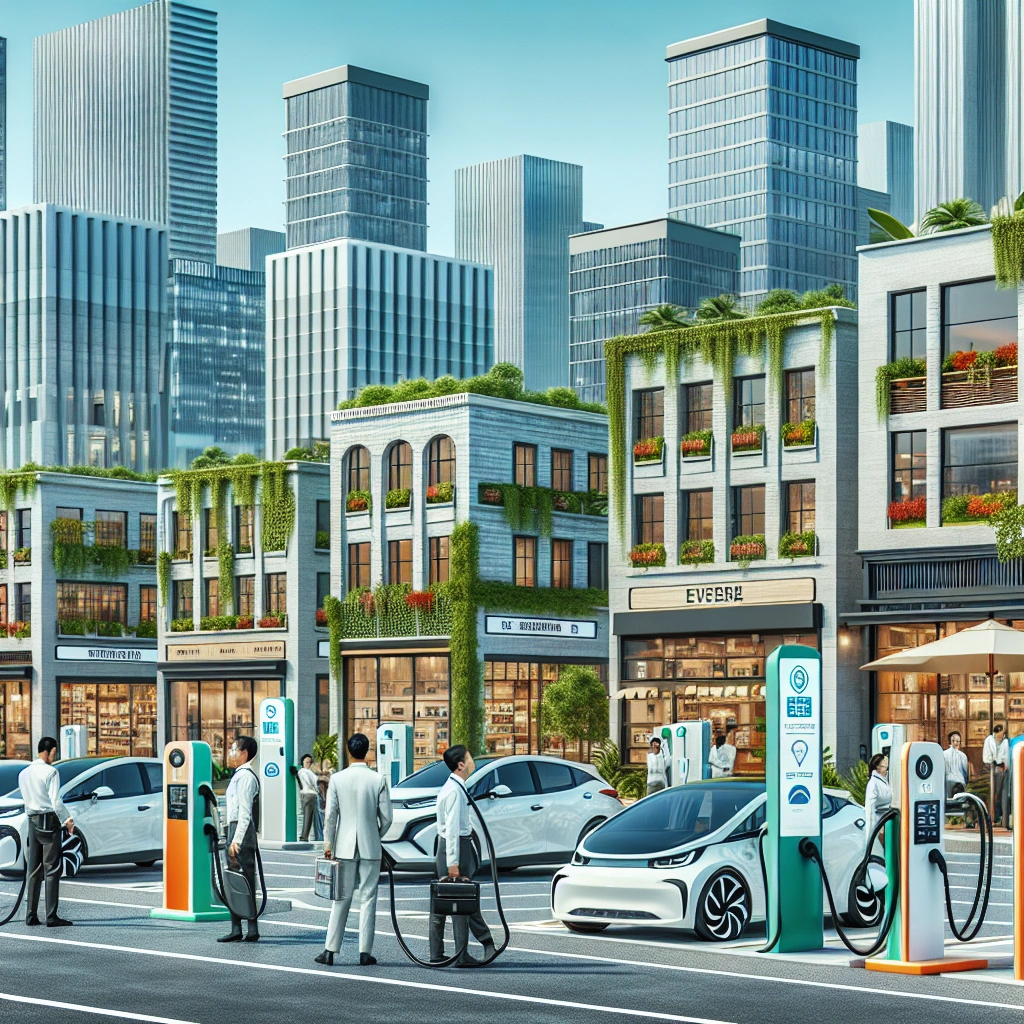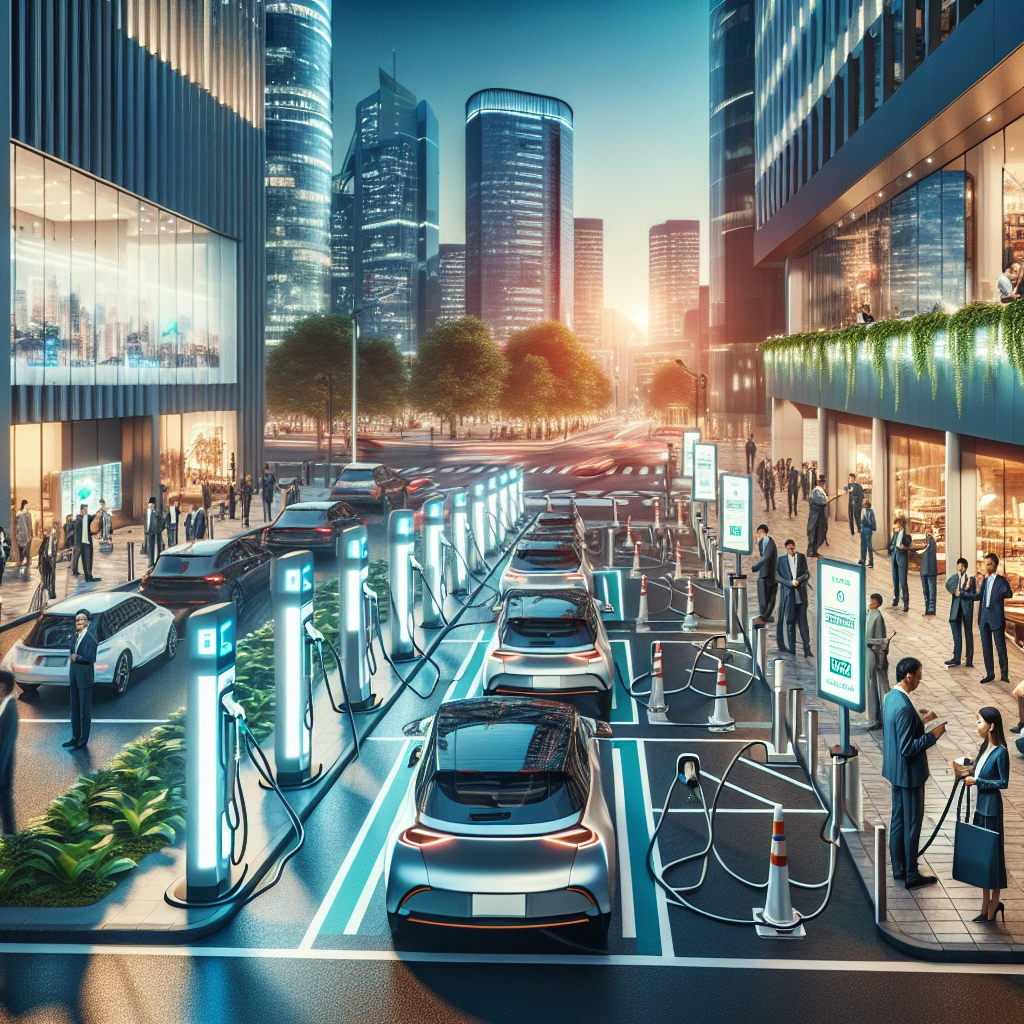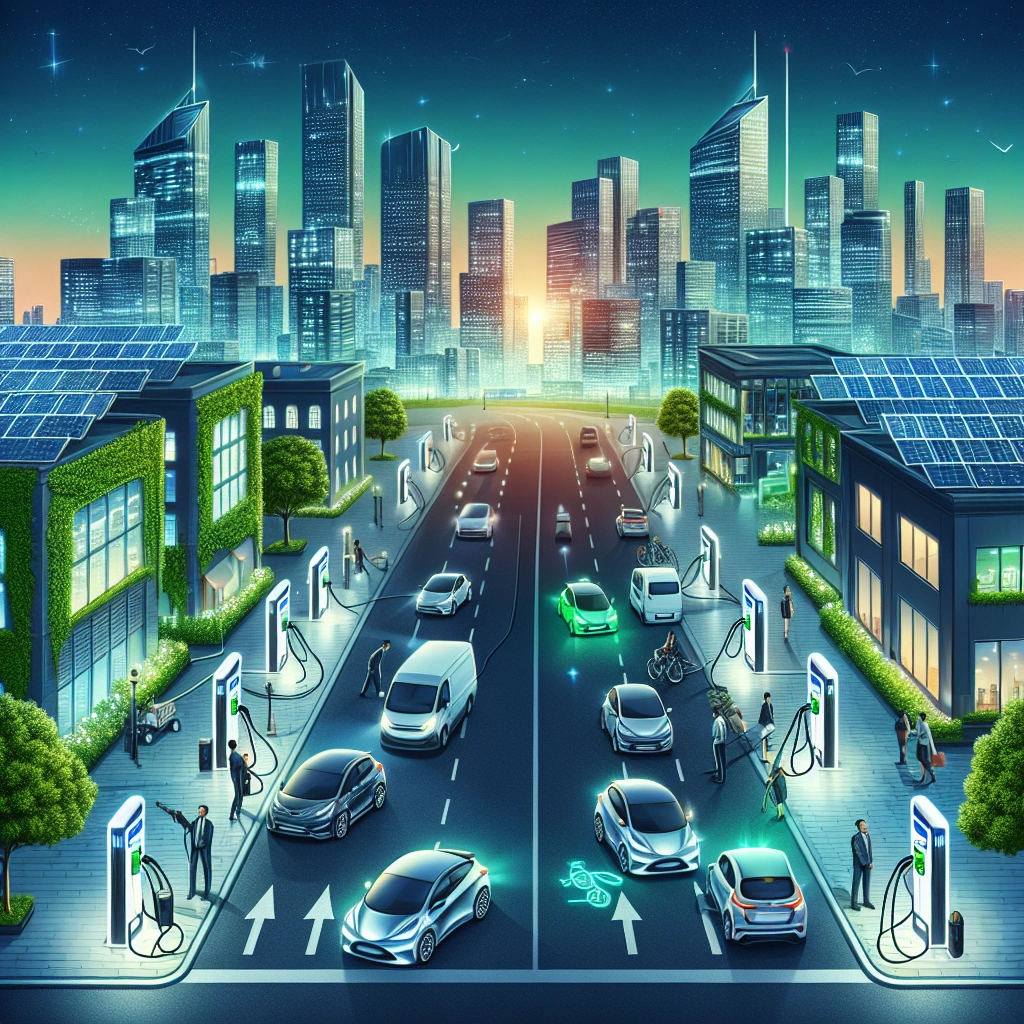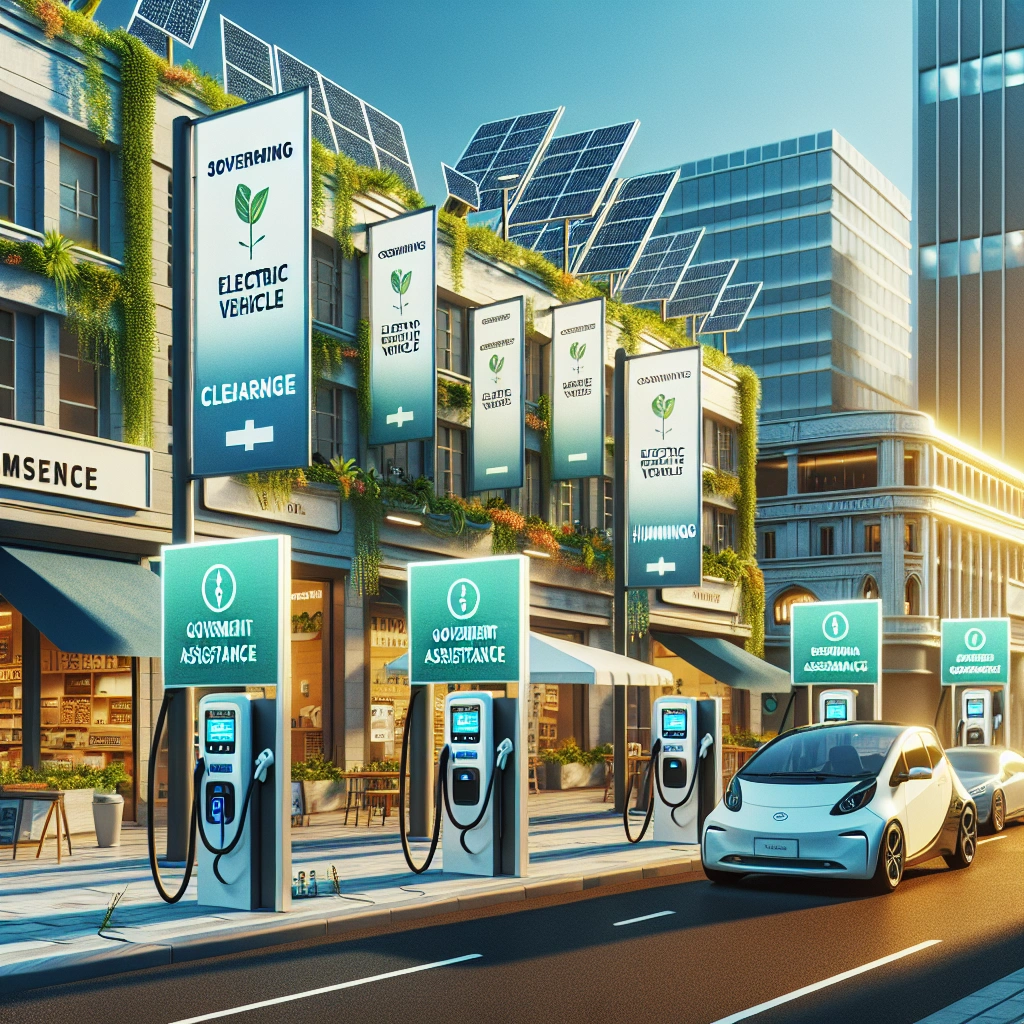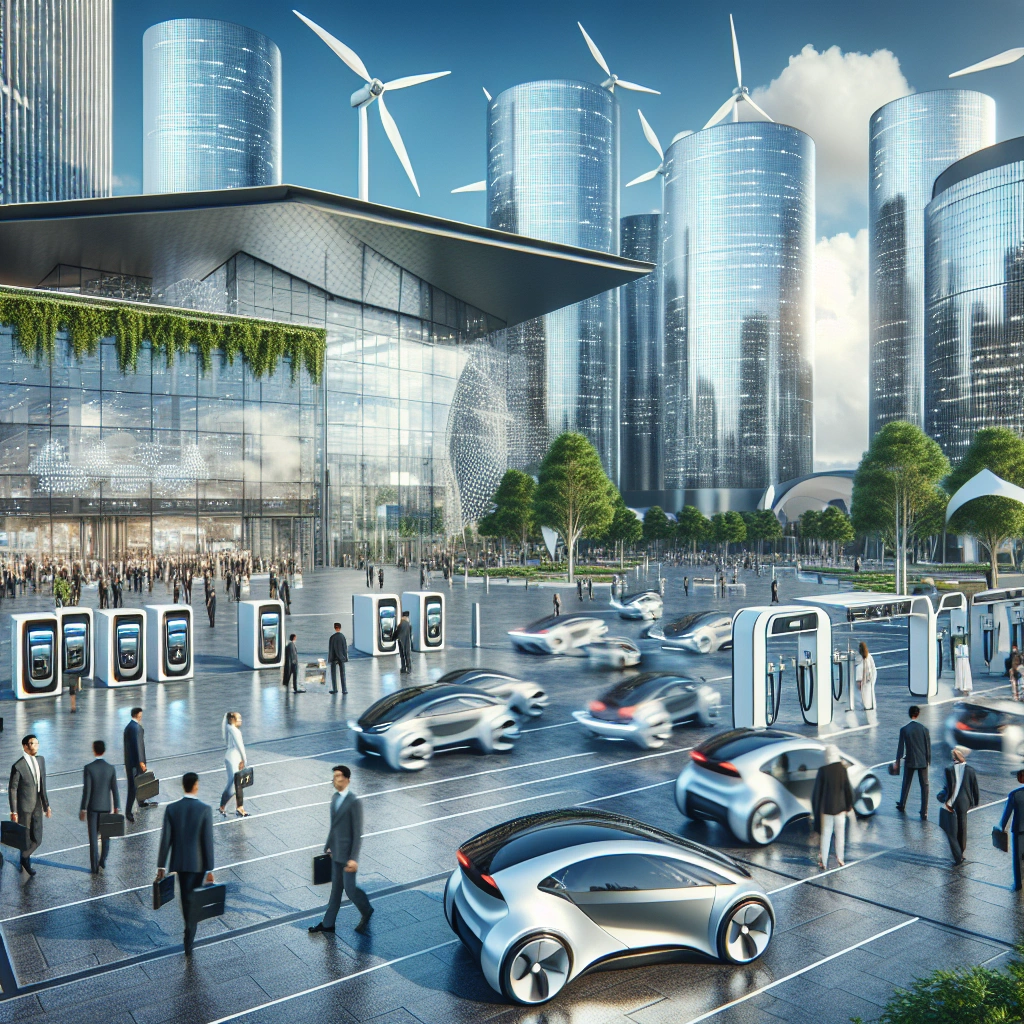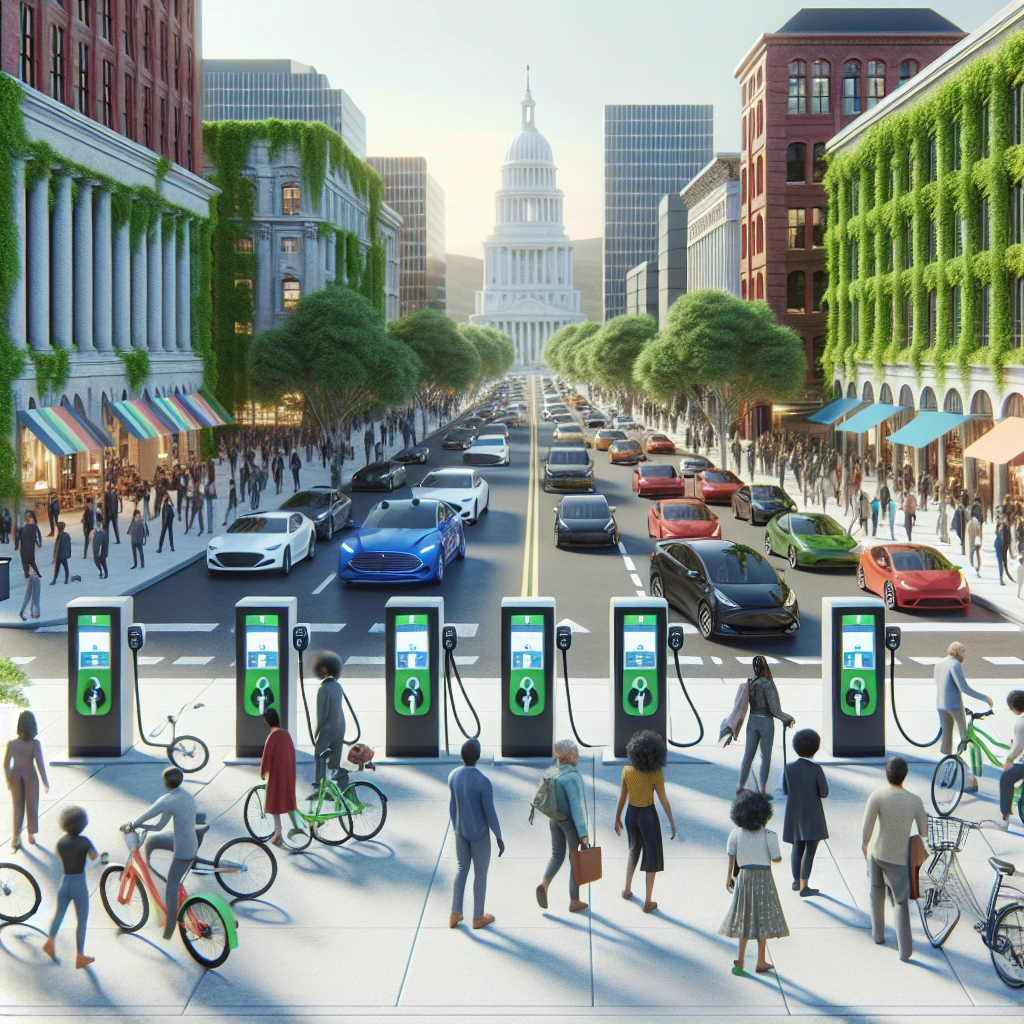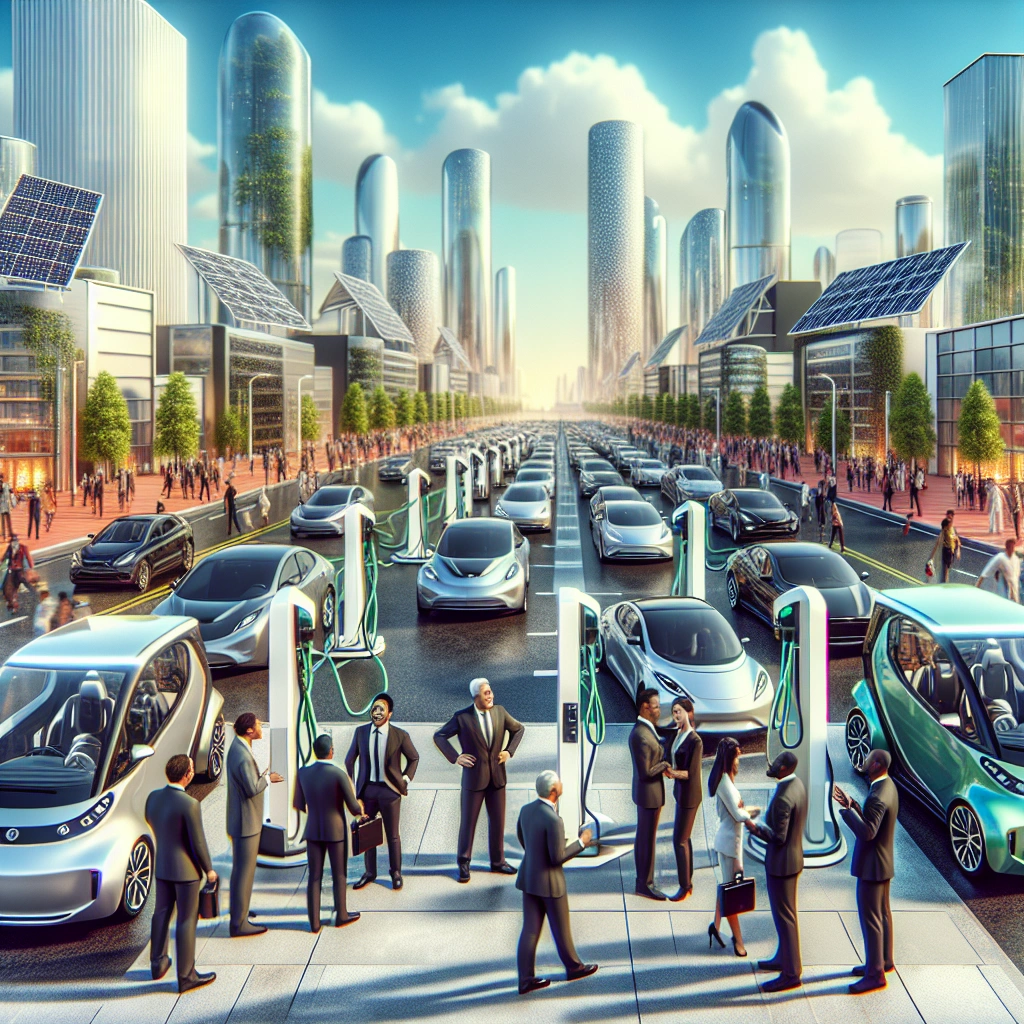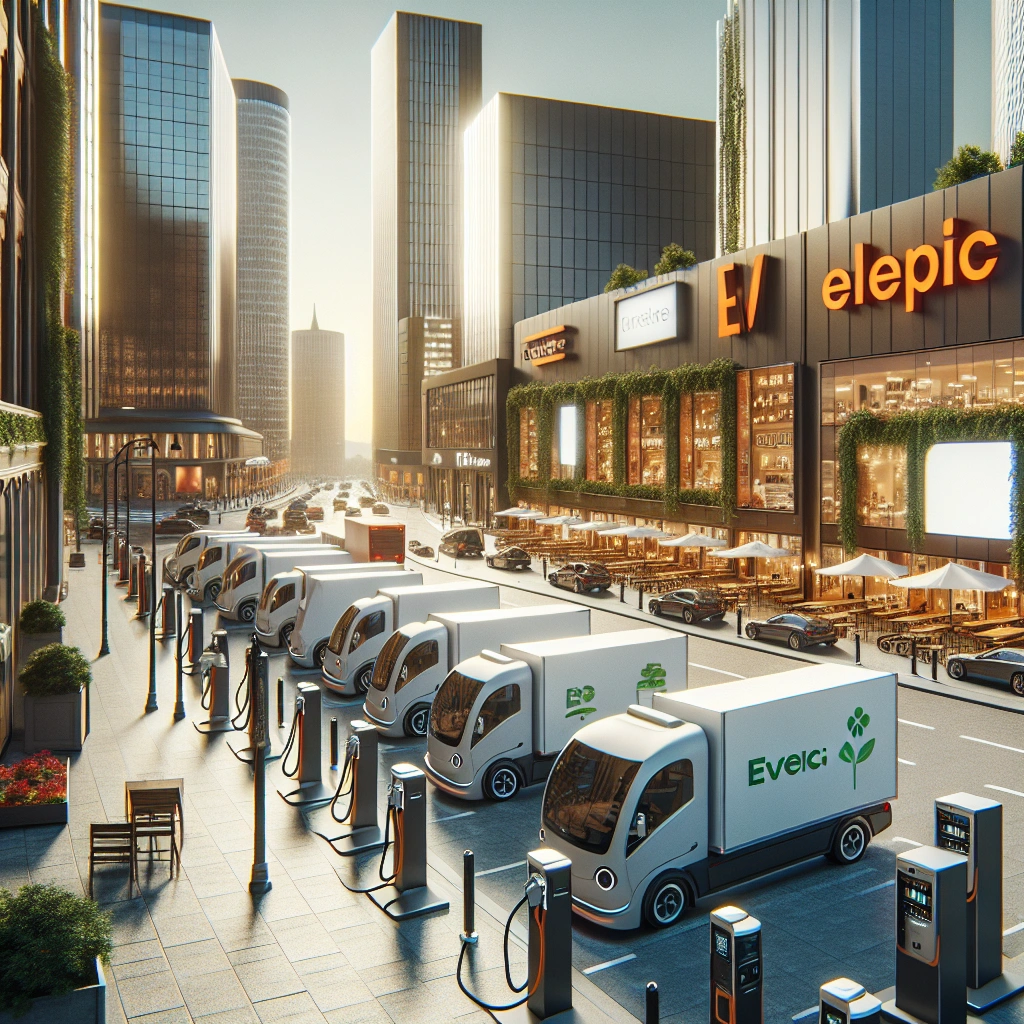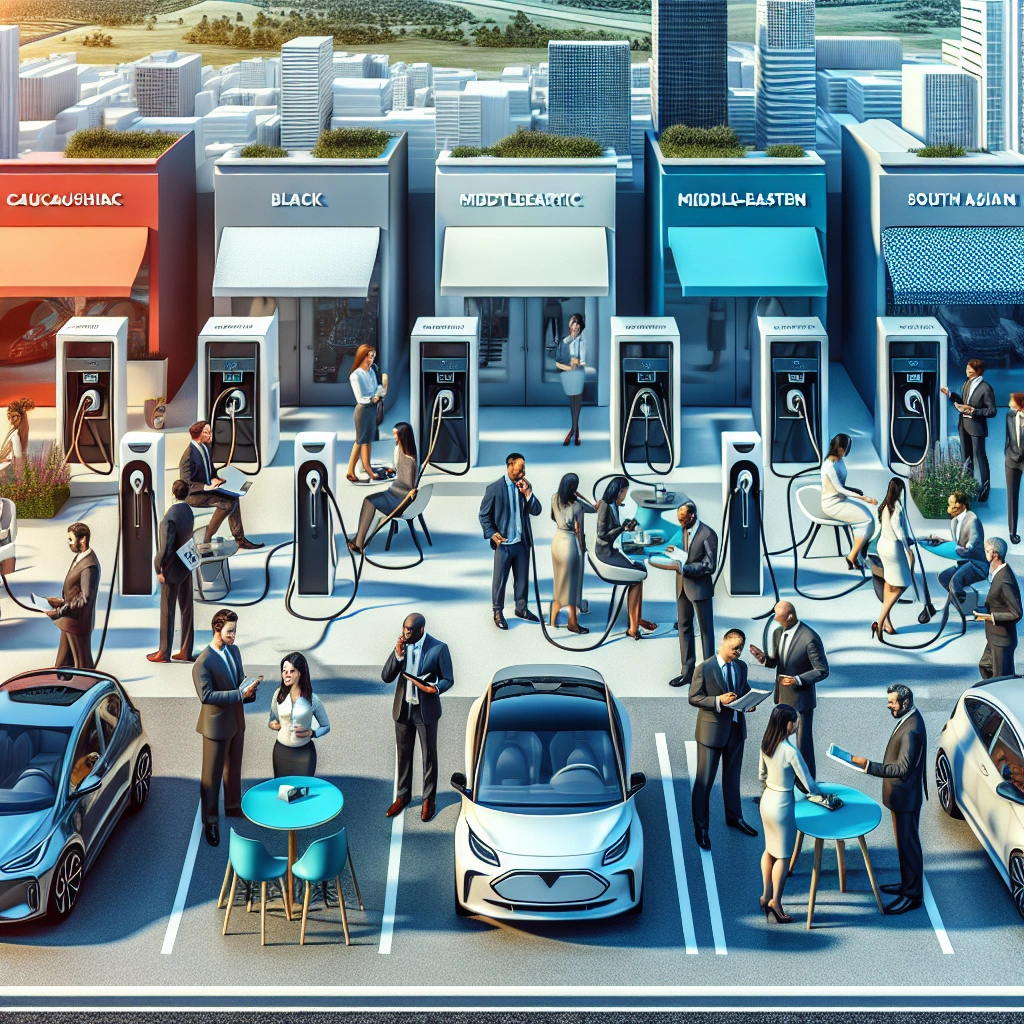Trends In Government Policies For Ev Incentives 2023


Government policies for EV incentives play a crucial role in promoting the adoption of electric vehicles in businesses. These incentives can include tax exemptions, financial grants, purchase rebates, and other perks that help reduce the cost of owning and operating electric vehicles.
As businesses are increasingly looking towards sustainable and environmentally friendly practices, government policies for EV incentives are essential for encouraging businesses to transition towards electric vehicles in 2023.
In 2023, the trends in government policies for EV incentives for businesses are expected to focus on providing additional financial incentives and support for the purchase and deployment of electric vehicles. These trends may include the introduction of new tax credits, grants, and other financial benefits to further encourage businesses to invest in electric vehicles.
With a growing emphasis on sustainability and reducing carbon emissions, government policies for EV incentives are likely to see significant advancements and developments in 2023.
The year 2023 is anticipated to witness an increase in government efforts to incentivize businesses to adopt electric vehicles through various policies and initiatives. These trends are expected to align with the global push towards reducing greenhouse gas emissions and promoting clean energy solutions.
As a result, businesses can expect to benefit from a range of new incentives and support measures to facilitate their transition to electric vehicles in 2023.
The Current Landscape of EV Incentives
Overview of existing government policies
The current landscape of EV incentives is characterized by a range of government policies aimed at promoting the adoption of electric vehicles. These policies include tax exemptions, purchase incentives, mandates, and deployment measures.
They seek to create a conducive environment for businesses to embrace electric vehicles.
Impact of current incentives on businesses
The impact of these existing incentives on businesses is significant. They provide financial relief through tax exemptions and subsidies, making it more economically viable for businesses to transition to electric vehicles.
This, in turn, contributes to a reduction in operational costs and fosters environmental sustainability by curbing emissions.
| Government Policy | Description |
|---|---|
| Tax Exemptions | Provide financial relief to businesses |
| Purchase Incentives | Encourage businesses to adopt electric vehicles |
Research and Development in EV Incentives
Investment in new technologies for EV incentives
Investment in new technologies for EV incentives is crucial for driving innovation and enhancing the effectiveness of electric vehicles. By focusing on cutting-edge technologies such as advanced battery systems and fast charging infrastructure, businesses can significantly improve the overall performance and user experience of electric vehicles.
Collaboration between government and private sector for research and development
Collaboration between the government and private sector for research and development plays a pivotal role in fostering advancements in EV incentives. This partnership facilitates the exchange of resources and expertise, leading to the development of sustainable and cost-effective solutions to drive the adoption of electric vehicles.
Government Regulations and Compliance
Compliance requirements for businesses to avail EV incentives include the need for the EV charging stations to be non-proprietary, allowing open-access payment methods, and being publicly available or accessible to authorized commercial motor vehicles.
The impact of government regulations on businesses is significant, as these regulations incentivize companies to invest in domestic production of EV charging components, positioning U. S. workers and businesses to compete and lead in this rapidly growing industry.
| Compliance Requirements | Impact of Government Regulations |
|---|---|
| Non-proprietary EV charging stations | Incentivize domestic production of EV charging components |
| Open-access payment methods | Position U. S. workers and businesses to lead in the industry |
| Publicly available or accessible to authorized vehicles |
Financial Incentives for Businesses
Tax credits and rebates for businesses investing in EV infrastructure:
Businesses investing in EV infrastructure can benefit from a tax incentive of up to 30% of the total cost of equipment and installation. They must meet certain labor and construction requirements to claim the full incentive.
Subsidies for businesses purchasing EVs:
Businesses purchasing EVs can qualify for a credit up to $7,500 under Internal Revenue Code Section 30D. The Inflation Reduction Act of 2022 changed the rules for this credit for vehicles purchased from 2023 to 2032.
Infrastructure Development
Government funding for EV charging stations and infrastructure
| Federal Funding Programs | Description |
|---|---|
| The EPA’s DERA Program | Funds grants and rebates to reduce harmful emissions from diesel. |
| EV Federal Funding Programs | Administered by the U. S. Department of Transportation and focus on rural EV infrastructure. |
| Whitehouse’s Bipartisan Infrastructure Law | Allocates $5 billion for a national charging network, with 10% set-aside annually for additional initiatives. |
Impact of infrastructure development on businesses
Improved Productivity: Well-designed infrastructure reduces transportation costs, enhances efficiency, and increases output, leading to improved competitiveness and business growth.
Improved Delivery: Enhanced port infrastructure results in timely deliveries, greater reliability, and reduced damage, ultimately increasing revenues and global market reach.
Economic Growth: Adequate infrastructure fosters economic growth and business development by connecting businesses to their markets and employees, contributing to revenue generation and job creation.
Environmental Impact of EV Incentives
Reduction of carbon emissions through EV incentives
Electric vehicle (EV) incentives play a significant role in reducing carbon emissions by encouraging the adoption of cleaner transportation options. As more businesses switch to EVs, the transportation sector’s overall carbon footprint decreases, contributing to a healthier and more sustainable environment.
One example of this impact can be seen in the Inflation Reduction Act of 2022 and the Bipartisan Infrastructure Law of 2021, together estimated to reduce emissions by approximately 1,000 million metric tons (MMT CO2e) in 2030. This demonstrates the tangible contribution of EV incentives to carbon reduction efforts.
Furthermore, transitioning to EVs can lead to substantial savings for businesses on fuel costs, while also boosting the efficiency of their fleets and transportation networks. It’s a win-win situation, with both economic and environmental benefits stemming from the widespread adoption of EV incentives.
Benefits of clean energy adoption for businesses
The business adoption of clean energy, particularly in the form of electric vehicles (EVs), not only reduces emissions but also contributes to establishing a sustainable transportation ecosystem. This move towards clean energy bolsters the security of energy sources in the transportation sector and aligns with global efforts to reduce carbon emissions.
Moreover, the tax incentives and credits provided for EV purchases, combined with the potential savings from reduced fuel costs, make a compelling case for businesses to embrace clean energy adoption. These benefits not only positively impact the environment but also enhance the cost-effectiveness and long-term sustainability of businesses’ operations.
International Collaboration and Standards
Global efforts and standards for EV incentives
The global community is striving to establish unified standards for electric vehicle (EV) incentives to encourage widespread adoption. Various countries are aligning their policies to support the growth of sustainable transportation options.
Impact of international collaboration on local businesses
International collaboration on EV incentives has a profound impact on local businesses. By adhering to international electrical standards, local manufacturers can improve their competitiveness, tap into global supply chains, and participate in large-scale projects.
This collaboration allows businesses to expand their reach and gain access to new opportunities in the global market.
Public-Private Partnerships
Public-Private Partnerships (PPPs) play a pivotal role in accelerating the deployment of EV charging stations and fostering consumer education. By combining the resources and expertise of the government and private sector, these partnerships attract substantial investment, drive innovation, and establish sustainable funding models for charging infrastructure.
Collaboration between government and private sector for EV incentives
The collaboration between the government and the private sector for EV incentives involves leveraging the strengths of each party. Government agencies bring regulatory knowledge and infrastructure planning, while private companies contribute technological innovation and operational expertise.
This synergy fosters innovation and ensures that charging infrastructure keeps pace with the rapidly evolving EV market.
Case studies of successful partnerships benefiting businesses
| Case Study | Description |
|---|---|
| Smart Cities Dive | Cities and companies working together to install charging stations, creating job opportunities and driving long-term economic benefits. |
| American City & County | Allocation of hundreds of millions of dollars to transportation systems for EV charging stations, fostering ancillary components for EV infrastructure. |
Job Creation and Economic Impact
Job opportunities created through EV incentives
The implementation of EV incentives is projected to create a substantial number of job opportunities across various sectors such as manufacturing, infrastructure development, and technology. With the increased demand for electric vehicles, the need for skilled workers and technicians to build, maintain, and support the EV ecosystem is expected to grow significantly.
Economic impact of EV incentives on local businesses
EV incentives are poised to have a profound economic impact on local businesses by stimulating investment in charging infrastructure, fostering the growth of EV-related industries, and creating new revenue streams. Local businesses, especially those involved in manufacturing EV components, providing charging solutions, and offering support services, are likely to experience an upsurge in demand, leading to enhanced economic prosperity within their respective communities.
| Aspect of Impact | Description |
|---|---|
| Job Creation | Significant increase in job opportunities across multiple sectors, especially manufacturing. |
| Economic Growth | Stimulates investment and economic growth in local businesses, driving revenue and prosperity. |
| Technological Advancement | Promotes innovation and advancement in EV-related industries, fostering a highly-skilled workforce. |
Consumer Adoption and Demand
Impact of consumer demand on businesses
Influencing consumer demand directly impacts businesses as it determines the success of their products or services in the market. Understanding and responding to consumer preferences for electric vehicles (EVs) are crucial for businesses to thrive and stay competitive in this evolving landscape.
Strategies for businesses to meet the growing demand for EVs
- Research and Development: Invest in R&D to innovate EV products that align with consumer needs and preferences, such as longer battery life and faster charging capabilities.
- Marketing and Education: Develop targeted marketing strategies to educate consumers about the benefits of EVs, debunking myths, and addressing common concerns to increase adoption rates.
- Infrastructure Investment: Collaborate with government and private sectors to expand EV charging infrastructure, providing convenient access to charging stations and addressing range anxiety.
- Partnership and Collaboration: Forge partnerships with other businesses and technology companies to enhance the EV ecosystem, offering integrated solutions and enhancing customer experience.
- Customer Engagement: Create personalized and engaging customer experiences, offering test drives, educational events, and incentives to encourage adoption and brand loyalty.
| Strategies | Description |
|---|---|
| Research and Development | Invest in innovations aligning with consumer needs and preferences for EVs. |
| Marketing and Education | Develop targeted marketing strategies to educate consumers about EV benefits and debunk common myths. |
| Infrastructure Investment | Collaborate to expand EV charging infrastructure, addressing range anxiety and ensuring accessibility. |
| Partnership and Collaboration | Forge alliances to enhance the EV ecosystem, offering integrated solutions and improving customer experience. |
| Customer Engagement | Create personalized experiences, offering test drives, educational events, and incentives to encourage adoption. |
Technological Advancements in EVs
When it comes to technological advancements in electric vehicles (EVs), we’re seeing major improvements in areas such as increased battery range, faster charging capabilities, falling prices, and reduced operating costs. These improvements are making EVs a highly attractive option in comparison to traditional gas-powered vehicles.
Innovation in EV technology
The innovation in EV technology is pushing the boundaries with developments like public charging infrastructure, vehicle-to-grid (V2G) integration, and digital transformation. These advancements are not only enhancing the performance and efficiency of EVs but also contributing to the overall growth and adoption of electric vehicles.
Impact of technological advancements on businesses
The impact of these technological advancements on businesses is profound. With the rise of EVs, companies are exploring new opportunities, such as leveraging digital transformation for gaining insights and accessibility.
Furthermore, these advancements are reshaping consumer preferences and driving significant growth in the market, leading to a shift towards a more sustainable transportation ecosystem.
| Technological Advancements | Impact on Businesses |
|---|---|
| Increased battery range | New opportunities for businesses |
| Faster charging capabilities | Reshaping consumer preferences |
| Falling prices | Driving significant market growth |
| Reduced operating costs | Contributing to a sustainable transportation ecosystem |
Social and Cultural Shift
Changing perceptions towards EVs and clean energy
Support for phasing out gas-powered vehicles has seen a decline, with Democrats and Republicans showing differing opinions. While a majority of Democrats favor such a phasing out, the majority of Republicans oppose it, reflecting the cultural divide on this issue.
Impact of social and cultural shift on businesses
| Social and Cultural Shift Impact on Businesses | Description |
|---|---|
| Evolving Consumer Preferences | Businesses need to adapt to changing consumer preferences towards EVs and clean energy, requiring strategic shifts in product and service offerings. |
| Regulatory Compliance | This shift impacts businesses through the need to comply with evolving government policies regarding EV incentives, requiring changes in operational strategies to align with regulatory standards. |
| Market Opportunities and Risks | Businesses face new opportunities and risks due to the social and cultural shift towards EVs and clean energy, necessitating careful market analysis and strategic planning. |
Changing perceptions towards EVs and clean energy influence businesses by requiring adjustments to consumer-facing strategies, operational compliance, and strategic decision-making to navigate evolving market dynamics.
Challenges and Barriers
Barriers hindering businesses from availing EV incentives
The barriers hindering businesses from availing EV incentives primarily revolve around the lack of adequate charging infrastructure, concerns regarding EV performance, limited availability of electric vehicles, and the affordability of EVs. These factors pose significant challenges for businesses looking to adopt electric vehicles and take advantage of the associated incentives.
Strategies to overcome challenges in implementing EV incentives
To overcome the challenges in implementing EV incentives, businesses can strategize by focusing on enhancing the charging infrastructure, increasing the number of charging stations, and working towards lowering the overall cost of electric vehicles. Additionally, investing in advanced technology to improve EV performance and expanding the availability of electric vehicles can contribute to overcoming these barriers.
Developing partnerships with government bodies and other organizations to secure funding and support for EV initiatives can also be instrumental in navigating and overcoming these challenges.
Future of EV Incentives
Predictions and trends for the future of EV incentives
In 2023, we foresee a significant surge in government incentives for businesses investing in electric vehicle (EV) infrastructure. With more emphasis on sustainability, governments will likely offer tax credits, grants, and subsidies to encourage the adoption of EV infrastructure in corporate settings.
Additionally, there may be an increased focus on partnerships between government bodies and private enterprises to drive EV innovation and deployment.
Moreover, the future of EV incentives is poised to witness a remarkable shift towards incentivizing businesses that invest in EV charging stations and related infrastructure. This presents a substantial opportunity for businesses to not only contribute to sustainable practices but also benefit from the incentives provided by governmental bodies.
Furthermore, we expect to see an emergence of initiatives aimed at promoting the widespread development of EV charging networks, thereby creating opportunities for entrepreneurial ventures and investments in this sector.
Recommended Amazon Products for Trends in government policies for EV incentives for businesses 2023
Here’s a list of products that can help businesses take advantage of the government policies for EV incentives in 2023.
1. Electric Vehicle Charging Station
Electric Vehicle Charging Stations are essential for businesses looking to invest in EV infrastructure. This charging station is highly recommended as it offers fast charging and can accommodate multiple vehicles at once.
Check out Electric Vehicle Charging Station for a reliable and efficient charging solution.


Pros and Cons of Electric Vehicle Charging Station:
| Pros | Cons |
|---|---|
| Fast charging | High initial investment |
| Accommodates multiple vehicles | Requires dedicated space for installation |
| Supports EV infrastructure development | Maintenance costs |
2. Tesla Model 3
The Tesla Model 3 is a popular electric vehicle known for its impressive range and performance. This car is recommended for businesses interested in purchasing EVs as it offers a blend of luxury, technology, and sustainability.
Check out Tesla Model 3 for a reliable and high-performance electric vehicle option.


Pros and Cons of Tesla Model 3:
| Pros | Cons |
|---|---|
| Long range | High initial cost |
| Cutting-edge technology | Limited service centers |
| Environmentally friendly | Dependent on charging infrastructure |
3. LG Energy Storage System
LG Energy Storage Systems are crucial for businesses looking to store energy from renewable sources and manage demand charges. This system is recommended for its reliability, efficiency, and long lifespan.
Check out LG Energy Storage System for a sustainable approach to energy storage.


Pros and Cons of LG Energy Storage System:
| Pros | Cons |
|---|---|
| Energy cost savings | Initial setup cost |
| Long lifespan | Space requirements |
| Renewable energy integration | Maintenance requirements |
Top Recommended Product for Trends in government policies for EV incentives for businesses 2023
If you’re looking for the best solution for leveraging government policies for EV incentives, we highly recommend the Electric Vehicle Charging Station. This product offers fast charging, supports infrastructure development, and accommodates multiple vehicles, making it an ideal choice for businesses.
Check out Electric Vehicle Charging Station today for a reliable and efficient charging solution!


Conclusion
The impacts of climate change on food security are far-reaching and severe, affecting both the availability and accessibility of food for many communities around the world.
Furthermore, the urgency of addressing climate change and its effects on food security cannot be overstated.
It is essential for individuals, communities, and governments to take meaningful action to mitigate the impacts of climate change on food security in order to ensure the well-being of current and future generations.



